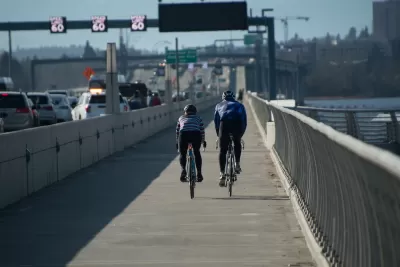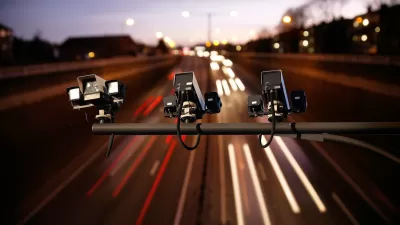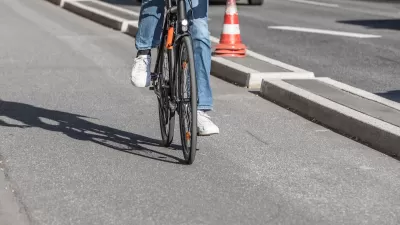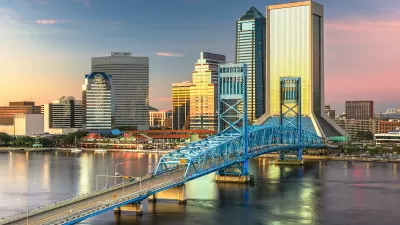Critics of a proposed $1.3 billion transportation levy say the package isn’t enough to keep up with inflation and rising costs and fails to support a shift away from car-oriented infrastructure.

Safe streets advocates in Seattle are calling on the city to propose a larger transportation levy to fund pedestrian safety and Complete Streets projects, arguing that the currently proposed $1.3 billion levy is “hardly enough to maintain the status quo, much less invest in new initiatives, especially once construction cost inflation is factored in.”
Erica C. Barnett describes the issue in PubliCola, noting that “the graphics-heavy proposal is noticeably light on specifics, the balance of spending categories skews heavily toward car-oriented projects, including road repairs, new pavement ‘on our busiest streets,’ and bridge maintenance, including upgrades and planning for the replacement of the Ballard and Magnolia Bridges.”
The new proposal cuts spending for transit connections, pedestrian projects, and freight mobility. Meanwhile, pedestrian and traffic deaths have been rising since the city adopted of a Vision Zero pledge in 2015. If the city installs sidewalks at the rate proposed in the plan, it would take 400 years to complete the city’s sidewalk network.
According to Barnett, “Polling by the mayor’s office revealed that voters would have approved a $1.7 billion levy—the highest level tested—but Harrell opted to go for a status-quo renewal, prompting many advocates to question why (and push for a more ambitious plan).”
FULL STORY: Advocates Urge City to Adopt More Ambitious, Less Car-Centric Transportation Levy

Alabama: Trump Terminates Settlements for Black Communities Harmed By Raw Sewage
Trump deemed the landmark civil rights agreement “illegal DEI and environmental justice policy.”

Study: Maui’s Plan to Convert Vacation Rentals to Long-Term Housing Could Cause Nearly $1 Billion Economic Loss
The plan would reduce visitor accommodation by 25% resulting in 1,900 jobs lost.

Planetizen Federal Action Tracker
A weekly monitor of how Trump’s orders and actions are impacting planners and planning in America.

Wind Energy on the Rise Despite Federal Policy Reversal
The Trump administration is revoking federal support for renewable energy, but demand for new projects continues unabated.

Passengers Flock to Caltrain After Electrification
The new electric trains are running faster and more reliably, leading to strong ridership growth on the Bay Area rail system.

Texas Churches Rally Behind ‘Yes in God’s Back Yard’ Legislation
Religious leaders want the state to reduce zoning regulations to streamline leasing church-owned land to housing developers.
Urban Design for Planners 1: Software Tools
This six-course series explores essential urban design concepts using open source software and equips planners with the tools they need to participate fully in the urban design process.
Planning for Universal Design
Learn the tools for implementing Universal Design in planning regulations.
Caltrans
Smith Gee Studio
Institute for Housing and Urban Development Studies (IHS)
City of Grandview
Harvard GSD Executive Education
Toledo-Lucas County Plan Commissions
Salt Lake City
NYU Wagner Graduate School of Public Service





























